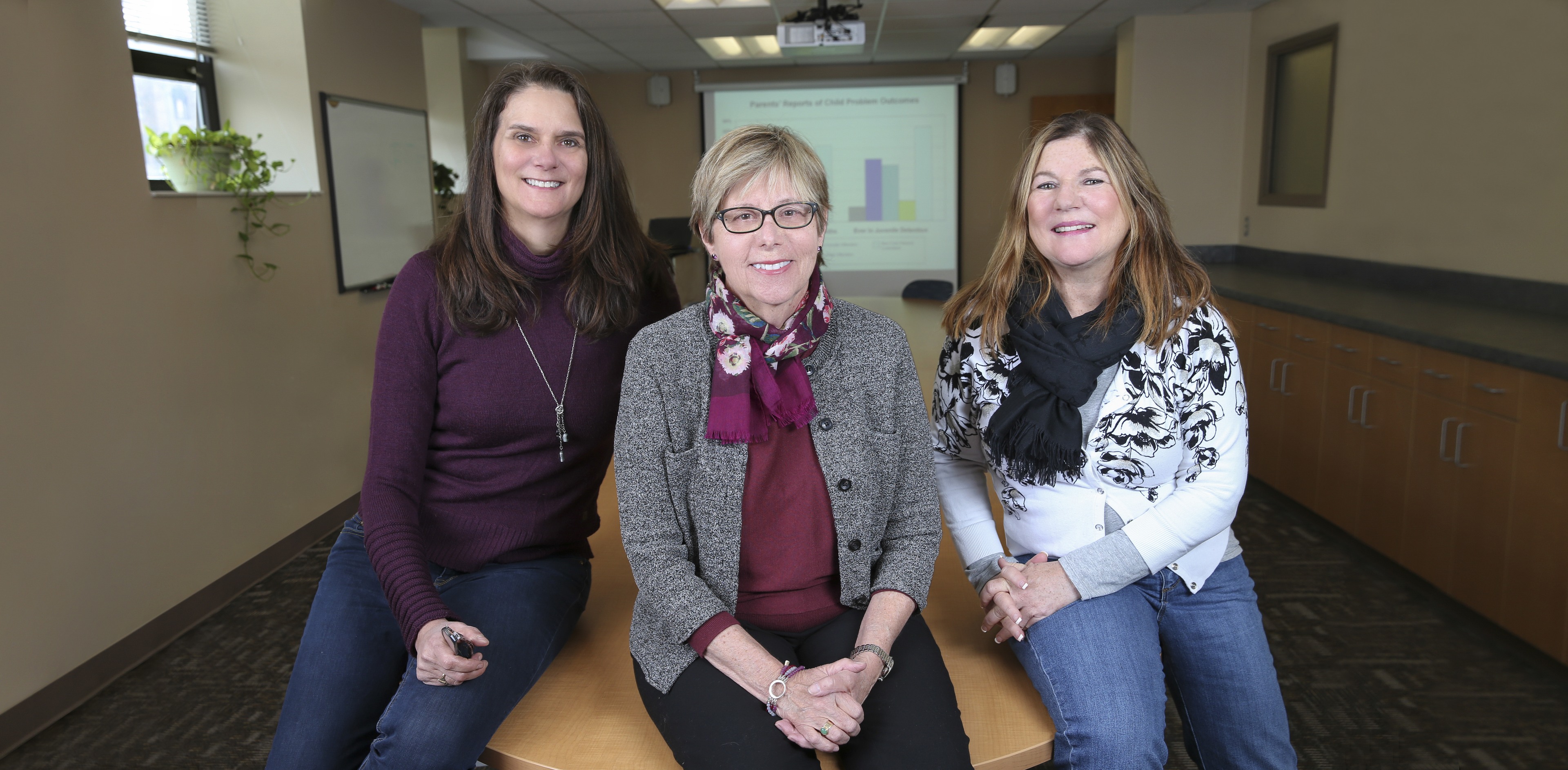
BGSU sociology study prioritizes undergraduate student research and experiential learning
Estimated Reading Time:
Renowned BGSU sociologists sought funding that would allow them to hire student researchers in the investigation of how the pandemic reshaped lives
By Laren Kowalczyk ‘07
A new study by three renowned Bowling Green State University sociologists will examine how people’s lives as teenagers and young adults shaped their ability to adapt to the pandemic, while providing research and experiential learning opportunities for undergraduate students.
Dr. Monica Longmore, a sociology professor, is among the trio of BGSU researchers working on the three-year project funded by a $426,000 Academic Research Enhancement Award, or R15 grant, from the National Institutes of Health.
R15 grants prioritize supporting undergraduate student research, which aligns with the University’s commitment to providing students with experiential learning opportunities as early as their freshman year.
Six BGSU students will serve as research assistants throughout the project.
“We specifically sought R15 funding because we know the value working on a project like this will provide our students as they pursue careers or graduate school,” Longmore said.
BGSU senior Jacob Goberman and sophomore Carly Beck, both majoring in sociology, are research assistants for the 2023-24 academic year. They participated in research ethics training before beginning their roles and are listed as funded researchers on an NIH interface, bolstering their knowledge and credentials as burgeoning researchers.
“I feel very fortunate to be an undergraduate student participating in a research project of this magnitude,” Goberman said. “This opportunity is really going to set me up for success.”
BGSU graduate student Teri Lee is also a funded researcher on the project and Dr. Kei Nomaguchi, sociology professor and director of graduate studies, and Dr. Gary Oates, associate sociology professor, are co-investigators.
Adapting to the pandemic
The research, titled “Adaptations to the COVID-19 Pandemic: Pre-pandemic Continuity and Changes in Emotional Well-Being,” will examine how demographic factors and pandemic-related stressors, such as economic hardship, job demands, social distancing and health concerns, affected the emotional well-being among adults in the Toledo Adolescent Relationships Study.
TARS is a prospective population-based study that interviewed racially and ethnically diverse adults from adolescence into adulthood over a span of 22 years.

Longmore and fellow BGSU researchers Dr. Peggy Giordano, Distinguished Sociology Professor Emeritus, and Dr. Wendy Manning, founder of the Center for Family and Demographic Research and Distinguished Sociology Professor, aim to prove that the ability to adapt depends on the severity of pandemic-related stressors, but is also reliant upon the broader context of people's lives and their prior strengths and vulnerabilities.
The longitudinal study includes a comprehensive database of qualitative data collected through online surveys and interviews of the same individuals since 2001. The data include six pre-pandemic interviews, one pandemic interview and a post-height pandemic interview conducted in the summer of 2022.
“This study will be a comprehensive examination of how the pandemic has reshaped lives,” Longmore said. “That long arm of data is what really makes this study unique.”
22 years of data
When TARS began, the average participant was 13 years old and today is in their mid-30s. Most existing pandemic research began during or shortly after the pandemic started, providing only a short duration of data to analyze, Longmore said.
“For example, you might see that anxiety levels are high, but high relative to what?" she said. "What is the baseline? One of the things we point out in our research is that this particular cohort, who are now in their mid-30s, began the pandemic with higher levels of anxiety.
“We can’t just assume that if anxiety appears high during the pandemic, it’s caused by the pandemic. Some of the folks started the pandemic with higher anxiety.”
An additional differentiator of the study is the diversity of its respondents. Longmore said one-third of participants are from minoritized groups, offering an authentic and diverse perspective of experiences.
Goberman and Beck, the student researchers, have begun transcribing interviews conducted during the pandemic to look for patterns and trends among the respondents’ answers.
In addition to analyzing data, the students will learn how to summarize their findings in a research paper and display them graphically. They’ll also attend the Population Association of America’s annual conference in Columbus, Ohio, in April 2024, to network with leading sociology and demography scholars and attend presentations.
“We’re committed to ensuring our undergraduate students benefit from this research experience and leave BGSU with the credentials that could help them lead their own research projects one day,” Longmore said.
Related Stories
Media Contact | Michael Bratton | mbratto@bgsu.edu | 419-372-6349
Updated: 11/16/2023 11:38AM




